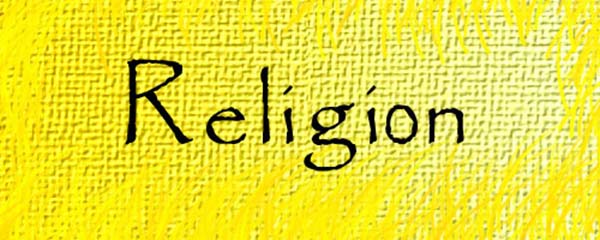An official interpretation of religion is in a chaotic state in our society. There are two major reasons behind this fact; claiming that religion can cover all aspects of social, cultural and political life in all ages and importuning that the government’s function is to put the religious sharia into practice. Such arguments will bear bitter fruit in the modern era and will not be in accordance with the soul of Islam. How the Muslims’ way of life and the social structure of life were like before the emergence of modernity in Islamic world?
Before the appearance of modernity and development in Islamic world, Muslims were subjugated to the natural conditions, traditions and conventions. Religious rituals played virtuous and social role in public life so as to protect the law and order and to deal with people’s cases via being practiced. Practices upon the religious guidance were considered as fulfilling the God’s order and practicing justice and moral norms and providing the social order on the basis of obviating the quarrels. In short, religious life and social life were the same and Muftis were deducing the Halal and Haram from religious jurisprudence and people were practicing upon in their daily life but yet religion kept silent in some aspects of life which was called ‘Manteqatul-Faragh’ (the realm of free wills).
However around 150 years back, Muslims, including Afghans, adopted a new method of life – which was totally different with the earlier one. The modern method of life, which was stated through the concepts of “progress” and “development”, was man’s cognizant and systematic engagement in natural conditions and social contacts aiming to develop all aspects of life. The motive behind this method of life was the great will of modern man.
Incontrovertibly, Muslims had to adopt the new method of life so as to live a modern life the same as Western countries. In other words, they had no choice other than assuming “progress” and “development”. If the Muslims’ life does not accord with the new world, this nation will miss the ability of living a modern life in today’s world. There are some main widespread characteristics of social life in modern age and Muslims, including Afghans, are subjugated to them:
This life roots in people’s will and it is totally industrial and also relates to experimental and social knowledge. Pluralism and religious tolerance, and public political partaking and democratic government are the very necessary parts of modern life. In the developed or developing countries, the government’s organization and functions are highly complicated. The rule and regulation, in modern life, bear highly comprehensive meaning and national progress and development are systematized on them. The integral function of today’s countries is to manage the trend of progress and development scientifically – which has provided new cultural and economic functions for the states.
Moreover justice, in today’s social life, is a highly complicated and philosophical concept. In the past life, justice carried a simple meaning and a ruler’s act was simply defined cruel or just on certain bases. However, the opposite is correct in our life and justice is interpreted in different ways.
In modern life, it does not necessarily mean to be secularized or put away the religion. A modern man can be godly but cannot discuss about the religious modernity or progress. Religion cannot subjugate modernity or make use of it in its own favor. In another item, religiosity cannot digest progress and development or de-secularize modernity.
Overall, today’s social life, which is based on development and Muslims also had no choice other than adopting it in the beginning of twentieth century, cannot be managed through religious jurisprudence such as Halal and Haram – it can rather meet a limited needs of social life. Today’s life can be managed via scientific administration and long-term organizing. Philosophy, political science, law, economy on the one hand and on the other hand, recognizing political and human values such as freedom, equality and social justice, in their modern term, play the most integral part in managing today’s social life.
Religious individuals are supposed not to look at all the social, economic and political issues through the glass of religion and one will fail to extract all requirements from religion. Through a deeper study about religion, one will find that religion deals with limited issues in a minimalistic way.
A Maximal approach is yet one of the great calamities which rule the minds of religious traditionalists and religious extremists. This is the same attitude which was adopted by the Catholic Church in the medieval age in Europe. This mentality was common among the religious Christians. Their idea was that religion can respond to the entire problems of human societies. According to them, religion was the only full-fledged item which included all the human necessities. It was the age of religion’s selfishness and pride.
By and large, any religious parties or individuals who expect religion irrationally and beyond its limitations will be doomed to failure. Religious extremists are the worst example who believe that religion can cover all aspects of today’s social life and digest modernity. Hope religion be interpreted rationally and in accordance with modern life. It should be noted that religion and modern life are not in conflict with each other and agreeing with today’s social life does not mean to be emptied of virtue and moral norms.

